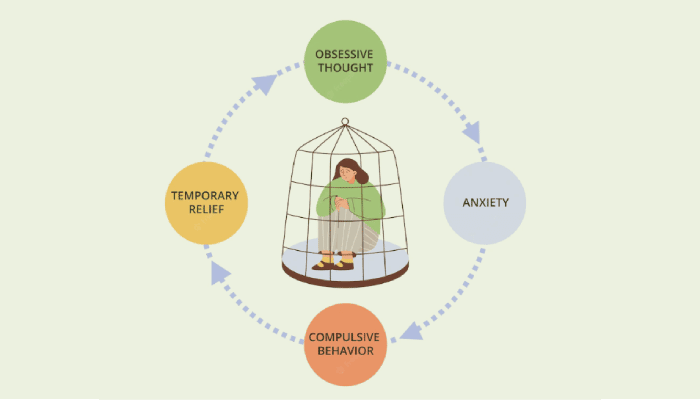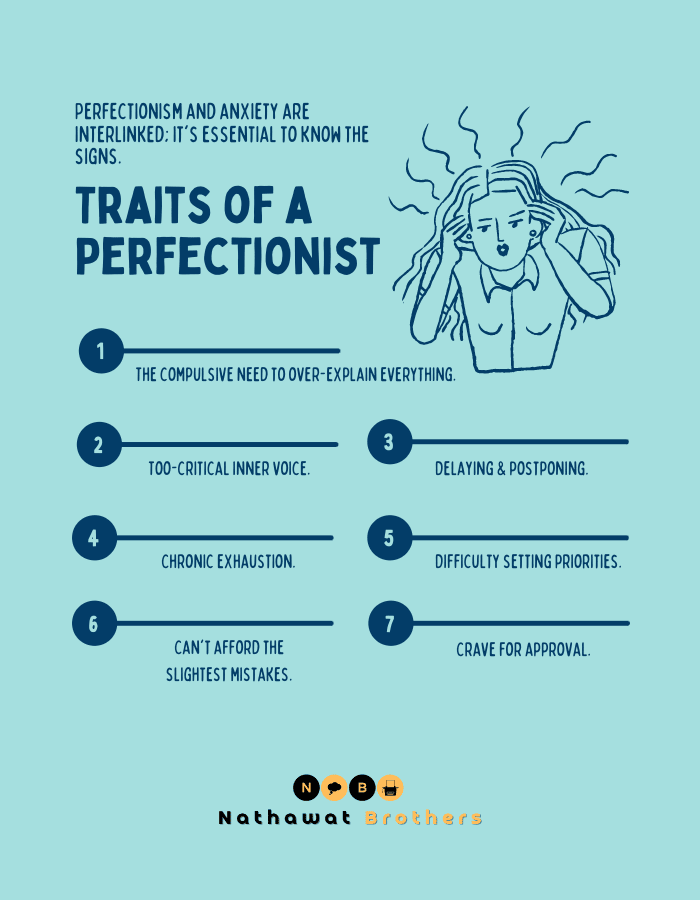This article on perfectionism contains some vivid graphics that might seem inappropriate to readers under 18. If you’re not the right age, please don’t read it.
You want everything to be perfect because we are all bit of a perfectionist.
We care about perfectionism, doing the job to the best of our ability, and presenting ourselves in the best possible light.
Throughout human history, this strategy has allowed us to survive, encouraged us to perfect our tools for combat, distinguish ourselves so that we become more attractive to the opposite sex, and ensure the survival of our genes.
However, whenever a strategy succumbed to the “tyranny of must,” it would lose its adaptive value and become dysfunctional.
High standards can act as a stimulus and help us realise our potential.
Still, if they become too high, they lead to the exact opposite effect: nothing is ever perfect enough. Or even near perfect.
Is Perfectionism Good or Bad? The Two Sides of Wanting Everything to Be Perfect
It is essential that you make a distinction between healthy and unhealthy perfectionism.
These concepts can also be separated, for example, into excellence, which leads to the realisation of our potential, and perfectionism, which is seen exclusively as negative.

In healthy perfectionism, we retain the desire to do the things that are important to us in the best possible way, achieve results, and at the same time, perceive ourselves as valuable human beings, even when our behaviour is not accompanied by success.
However, in unhealthy perfectionism, we act under the influence of what Albert Ellis, the founder of REBT, called “compulsion,” and our behaviour takes on the form of compulsion.
It’s simply obsessive perfectionism or, more technically, Obsessive Compulsive Disorder (OCD.)
When we strive for excellence, we have the option of not doing our best in certain situations, while with perfectionism, we feel like we have no choice but to be perfect.
Characteristics of Negative Perfectionism: the Need to Be Perfect
This brings us to one of the first characteristics of (negative) perfectionism: a lack of flexibility.
A perfectionist is someone who grew up with high expectations, criticism, an enormous degree of control, and the message that there is only one right way to do something: everything must be perfect.
The goals he sets for himself may be unrealistic so that no human being could achieve them.

Or they would require so much work and effort that the question arises as to how meaningful it would be to achieve them.
Therefore, the perfectionist lacks prioritisation, and each activity is given equal importance, resulting in a lot of time wasted on less significant or insignificant actions.
If it is often applied in any sphere of life – in work, speech, writing, or in the sphere of physical appearance or health.
When everything has to be perfect, you’re developing/living in behaviour that leads to a constant feeling of exhaustion and a life without play and spontaneity.
Why Do I Want Everything to Be Perfect? How Much of a Perfectionist Am I?
When we are born, our survival depends entirely on the goodwill of others without us even realising it.
During childhood, however, we become increasingly aware of our inability to care for ourselves.
And parental love becomes directly linked to our survival so that we learn very early what we need to do in order not to be rejected. The intrinsic nature of ours, trying or striving to be perfect.

So perfectionism is a position that we learned to a large extent when we were children and which forces us to do everything we do under pressure and stress.
You can say both perfectionism and anxiety are interlinked.
It can be a consequence of learning by model, in the sense that we had rigid parents or a structured environment in some other way. Or it can be part of some social value, as is the case, for example, with Japan and its perfectionist standard.
In a 2013 study, it was found that the Japanese have higher levels of socially prescribed perfectionism compared to the British.
The conditioning of love is generally not explicit. Few parents will directly tell their child, “I’ll only love you if you have all A’s,” but they will show it in different ways.
Perfectionism can also be a consequence of the fact that, as children, we assumed roles that we were not up to, and we set ourselves too high standards precisely because we were not up to them.
A child who has had to take care of other children, adult members, or appease parents, learns that the only way to deal with his own anxiety is to embrace every aspect of the situation and control everything.

Typical Signs of a Perfectionist
- The compulsive need to over-explain everything.
- A too-critical inner voice.
- Delaying and postponing because you need to do one more thing to make it perfect.
- Chronic exhaustion.
- Difficulty setting priorities.
- Feeling devastated after you make even the slightest mistake.
- Finding something wrong with everyone.
- Always looking for ways to improve everything even though no one asked you to, and no improvement is necessary.
- For you, it is all or nothing.
- You crave approval.
- You are chronically preoccupied with guilt.
You May Also Like
How to Let Go of Perfectionism?
People are often afraid to let go of perfectionism because they believe that their high standards prevent their whole system from falling apart.
They mistakenly believe that letting go of those standards would lead them into chaos. First of all, it is vital to help them understand that it is about the “barrel of the Danaids.”

Namely, the Danaids were the king’s daughters who, according to Greek mythology, atoned for their sins in the Underworld by filling a bottomless barrel with water to infinity.
No matter how good they have done, they will always be able to do better, and everything they do will resemble the constant filling of a bottomless barrel.
Namely, on the one hand, they may have an unattainable goal, but even when it comes to an achievable goal, the question arises as to what would be the price of such so much effort.
The developmental task would be to accept the relativity of values and redefine one’s own standards in different spheres of life according to their degrees of importance.

Perfectionists often overlook that expecting “everything to be perfect” takes the fun, joy, and spontaneity out of life and makes it difficult to connect with others.
The pressure to “be perfect,” to say the “perfect sentence,” and continuously remind yourself that “I am a perfectionist” is the biggest obstacle to empathy and compassion.
Suppose someone focuses all their energy on finding the “right” word.
They have a problem talking to other people in general because they are so full of themselves.
In that case, we will miss the opportunity to truly see and empathise with another being.
Hence, the antithesis for “Be perfect” would read like this: “Be a human being.” So, he is not an unchanging, rigid, static Platonic deity but a man with all his virtues and faults, to whom nothing human is foreign.
What perfectionists often forget is that their identity is far broader than the results of their actions. That is, they cannot be equated with their results.
Thus, it’s essential to stop trying to be perfect because you don’t have to be perfect.
Helpful Questions for Perfectionists
- Is this goal achievable?
- Do I have to make it happen?
- What would be the cost of that?
- Can I be flexible about this standard and adjust it as needed?
Perfectionists have specific beliefs by which they maintain their perfectionism. For example, they may believe that there is only one correct way to wash the dishes, but these beliefs are there only to protect them from the fear of making a mistake.
Learning to Accept Mistakes
When a perfectionist makes a mistake, he can find it hard to move on. He easily falls into the vicious circle of self-blaming and self-punishing.
Learning to forgive yourself for making a mistake is the most formidable challenge if you are a perfectionist.
The thing about perfectionists is they are rarely so hard on others as they are on themselves. Somehow, they are often able to understand others but never find mercy for their wrongdoings.
So, if you want everything to be perfect, you are bound to make many mistakes.
The sooner you learn how to become your best friend, the closer you will be to perfection.
But one thing you need to know is whether you are a perfectionist or not; you will never reach perfection because perfection does not exist.
The difference between realising one’s potential and wasting one’s life in senseless rigidity and superstitious obsessiveness lies in the fact that striving for excellence or healthy perfectionism focuses on things that have a productive outcome, not on meaningless rituals that maintain anxiety.
When the Society Poses Unrealistic Standards
The time we live in is marked by visual culture.
Social networks cultivate the cult of perfect bodies, perfect lives, and perfect loves that are impossible to achieve.
Often and unconsciously, we fall under the influence of such images because they are all around us.
The result is that we feel bad that we are not so perfect.
Close, healthy relationships with other people can protect us from such influences. Closeness is a natural antidote to perfectionism.
Affirmations for Perfectionism That Might Help You Do Your Job Imperfectly, But Good and Stress-free
If you’re suffering from too much perfectionism, the following affirmations will allow you to focus and complete your task without getting overwhelmed or burned out.
“Done is better than perfect.”
“Everyone makes mistakes, and that’s how you grow.”
“There’s more than one ‘right’ way to do something.”
“Progress, not perfection.”
“Perfect in the imperfect is perfect.”
“Work for improvement, not for perfection.”
“My achievements do not define me.”
“What’s perfect for you will always be imperfect for others.”
“The Sun burns in the eyes, the Moon hides, and the Earth trembles, but still, they are incomparable.”
The above thoughts were of the writers only; nathawatbrothers.net have provided them with a space to present them before readers. If you find any issue or something against people’s rights, please feel free to reach us at brothers@nathawatbrothers.net.
If you liked this article on perfectionism and want to read more like it, you can subscribe to our free newsletter. Besides, make sure you share it with your friends, family, colleagues and people who would need it more.
You can also support nathawatbrothers.net by visiting our Show Courtesy page.
That’s it; thank you
Nathawat Brothers
Putting thoughts for everyone


